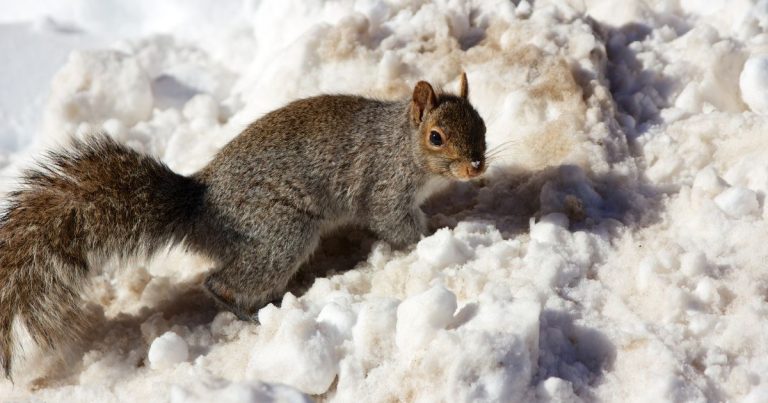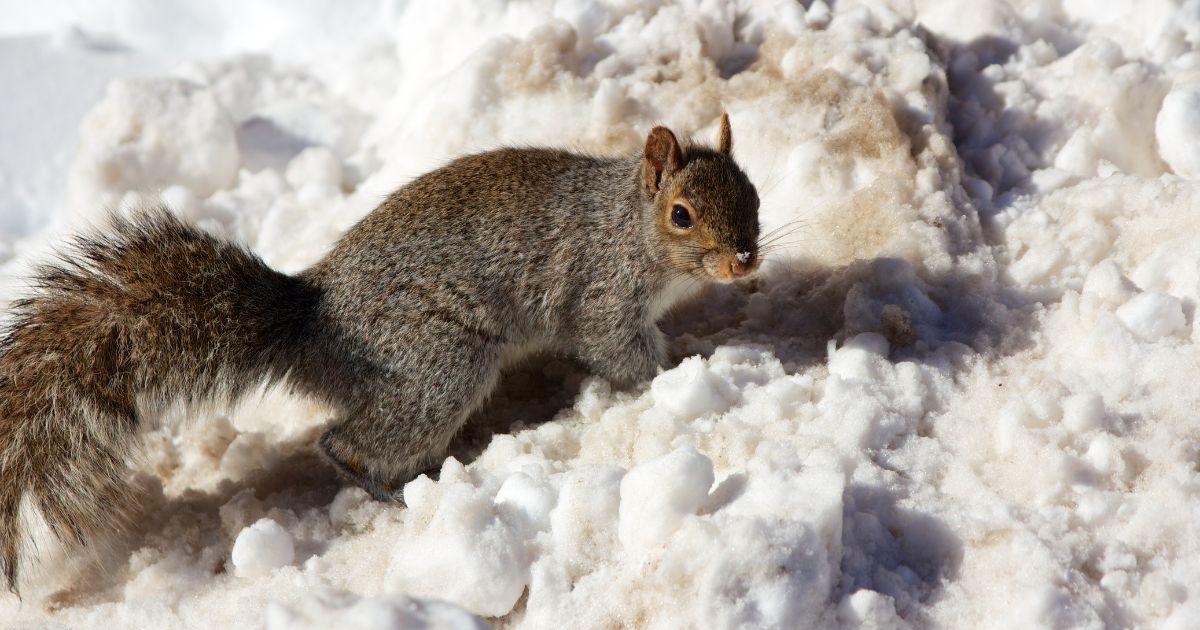As winter sets in, gardens become a playground for squirrels seeking food and shelter. While observing these lively creatures can be entertaining for kids, ensuring their safety during these encounters is essential. Understanding the importance of garden safety when it comes to interacting with wildlife helps keep children secure while they enjoy the wonders of winter squirrels.
Squirrels can sometimes display unpredictable behavior, especially if they feel threatened or cornered. Parents and guardians should teach children to watch from a distance, avoiding direct interaction with the animals. This approach protects kids from potential bites or scratches and maintains healthy boundaries for the squirrels in their natural habitat.
Incorporating simple guidelines for garden safety can turn winter squirrel watching into a fun and educational experience. Encouraging kids to observe calmly and respect the animals’ space fosters an appreciation for wildlife while minimizing risks. For families seeking added protection, Critter Stop’s squirrel removal services in Dallas and nearby areas offer professional assistance to secure outdoor areas. With these tips, families can create memorable moments in the garden this winter, knowing their space is safe and inviting.
Understanding Squirrel Behavior in Winter
Squirrels adapt their behavior during winter, impacting how they interact in gardens. Awareness of these changes helps families create a safe environment.
Squirrel Activity in Gardens During Winter
In winter, squirrels exhibit various behaviors shaped by their need for food and shelter. Snow can cover their natural habitats, leading them to forage in gardens for nuts, seeds, and other food sources. Squirrels often cache food in multiple locations, burying items to retrieve later.
Due to colder temperatures, squirrels may spend less time actively foraging and instead focus on gathering and storing food. Families should monitor these activities, as they can indicate areas where squirrels feel comfortable and where children might encounter them. Critter Stop offers squirrel removal services to help families manage these situations if the squirrels become too invasive.
Winter Squirrel Concerns for Families
While squirrels are generally harmless, there are concerns for families in winter. One issue is the potential for aggressive behavior if squirrels feel threatened. Squirrels may react defensively if they are cornered or protecting their food supply.
Additionally, squirrels can damage gardens and property. They often chew on wood and wiring for nesting materials or food. Parents should instruct children not to disturb squirrels or approach them closely.
Awareness of these behaviors can help families enjoy the presence of squirrels while ensuring safety during outdoor activities in the winter months.
Safety Measures for Kids
Winter gardens can be fun for children, but safety should always come first. Understanding how to interact with squirrels and employing deterrent methods can ensure a safe outdoor experience.
Keeping Kids Safe from Squirrels in Winter
It is important to teach children about wildlife safety to protect them from potential squirrel encounters. Educators and parents should explain that squirrels are generally not aggressive but may act defensively if they feel threatened.
Children should be instructed to avoid chasing or cornering squirrels. Instead, they can observe from a distance. Creating a safe zone where children can play without squirrel interactions is helpful. This can be a designated area away from trees and shrubs.
Supervision is essential. Adults should always monitor children when they’re playing outside and intervene if squirrels approach too closely. Additionally, instructing children never to feed wildlife helps discourage squirrels from approaching.
Kid-Friendly Ways to Deter Squirrels in Garden
There are several effective methods to keep squirrels at bay while allowing kids to enjoy the garden. One option is using natural deterrents. Planting herbs like rosemary or lavender can repel squirrels due to their strong scents.
Another strategy involves physical barriers. Fencing around specific garden plots can create a protected area. Opt for a fence at least three feet high and buried a couple of inches into the ground.
Using commercial squirrel repellents is also an option. These products usually have non-toxic ingredients that won’t harm children or pets while effectively discouraging squirrel visits.
Encourage children to participate by making garden maintenance a family activity, including checking barriers or helping plant deterrent herbs.
Garden Protection Strategies
Effective strategies for protecting a garden from winter squirrels can enhance children’s safety. Critter Stop offers reliable squirrel removal services for those seeking professional support to ensure that any squirrel interactions are safe and manageable.
Protecting Garden from Squirrels in Winter
Consider implementing physical barriers to shield gardens from winter squirrels. Fencing can create a protective perimeter. Fences should be at least 4-5 feet tall, making it difficult for squirrels to jump over.
Another option is to deploy netting around vulnerable plants or flower beds. This creates an obstacle without harmful effects on the animals.
A natural deterrent can be found in certain scents that repel squirrels, such as cayenne pepper or vinegar. Sprinkling these substances around plants may discourage squirrels from foraging.
Regular maintenance, like clearing fallen fruits or nuts, can also help minimize the area’s attraction. Keeping the garden tidy reduces food sources for squirrels during colder months.
Managing Winter Squirrel Visits Around Children
When squirrels frequent a garden where children are playing, supervision becomes key. Parents should teach children to observe but not approach or feed the squirrels.
Creating designated play areas can keep kids engaged while minimizing contact with wildlife. Elevated squirrel-proof feeders can provide food without encouraging unwanted interactions.
Setting boundaries in the garden helps convey to children that certain areas are off-limits. Parents can illustrate safe practices about wildlife encounters, emphasizing a respectful distance.
Parents must ensure that garden tools or materials, like bait or traps, are securely stored. This prevents accidental injury or misuse while children are present.
Frequently Asked Questions
This section addresses common inquiries regarding managing squirrel interactions in residential gardens while ensuring children’s safety. It covers practical methods, plant choices, and protective measures.
What are effective methods to keep squirrels out of residential gardens?
Fencing can provide a physical barrier, effectively deterring squirrels. A fence that extends underground prevents burrowing. Additionally, using motion-activated sprinklers may scare them away.
Which plants can deter squirrels from entering vegetable gardens?
Certain plants have natural deterrent properties. Scented herbs like rosemary and mint repel squirrels. Other options include marigolds and geraniums, which are unappealing to them.
What are the best practices for protecting young children from squirrels in the garden?
Teaching children to avoid directly feeding or approaching squirrels is essential. Supervision can ensure safety during playtime in the garden. Creating a safe distance allows children to enjoy nature while minimizing risks.
Can decorative garden features help in preventing squirrel intrusion?
Decorative elements such as wind chimes or garden stakes can disrupt a squirrel’s path. Reflective surfaces may also deter them, as squirrels often avoid areas with perceived danger.
How to ensure the safety of garden plants from squirrels during the winter?
Protecting vulnerable plants with protective netting can shield them from squirrels. Mulch may lessen squirrel activity by providing hiding spots for their food. Ensuring garden cleanliness can also reduce attractants.
Are there any child-friendly repellents useful for keeping squirrels at bay?
Repellents made from natural ingredients can be effective. Options include vinegar or citrus-based sprays, which are generally safe for children. The application can be targeted around garden boundaries to minimize squirrel visits.
Contact Critter Stop at 214-380-1667 for reliable squirrel removal services. Their 5-star team provides comprehensive solutions to protect your property from squirrel intrusions.












